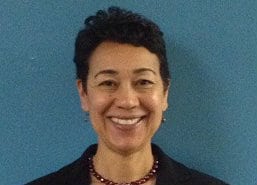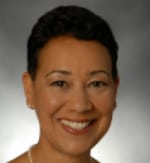In order to close opportunity gaps and transform our nation’s schools, it is imperative to ask the right questions.
In advocating for a broader and bolder approach to education, Dr. Pedro Noguera, Peter L. Agnew Professor of Education, New York University, challenged participants, including me, at the recent National Forum of the Education Commission of the States to examine ways to close persistent achievement gaps. I attended this session eagerly, as this topic is one of ongoing importance to the American Youth Policy Forum. Declaring that “Education should be a nonpartisan issue,” Noguera urged attendees to think differently about assessments, support systems, the learning environment, and the role of teachers, concluding with three challenging questions.
Noguera set the stage for why we need to continue to address persistent achievement gaps, noting that “schools are not breaking the cycle of poverty.” We need to continue to ask to what degree students’ backgrounds are driving outcomes. He commented that in many instances, if one knows the race and socio-economic status of the district, one can predict how well the schools will do. In addressing these challenges, money alone is not the answer. Rather, Noguera asserted, it is “about how the money is used and about the vision driving educational success.”
Laying out that vision, Noguera noted that we need to address the current narrow definition of achievement that looks mostly at test scores and uses these to rank schools and teachers, he underscored that we need to focus on teaching students to write, read, and conduct research that prepares them for college. “We should use assessment to diagnose, intervene, monitor, and provide support to address the needs of students,” Noguera said.
Aligning with AYPF’s focus on ensuring a comprehensive system of supports for students, as well as embedding youth development principles in how young people are mentored and taught, Noguera illustrated the importance of involving parents in their children’s schooling. “We need to treat parents as partners,” Noguera said. For example, in PS 28 in Brooklyn, New York, where parents have been trained to work with teachers, these parents volunteer at the school, which also provides job training and GED preparation for them. Noguera also encouraged a focus on the whole child, providing students with social and emotional support and attending to issues of nutrition, health, art and music. At PS 28, where 30 percent of students are homeless, the school works with the local YMCA which provides afterschool supports to students. Professional development for teachers at the school includes opportunities to ask social workers for advice, so that they receive practical assistance on how to address student challenges.
“The problem is not the children; it is how we treat children. We need to pay attention to the learning environment,” Noguera said. In providing research-based guidance on how to create optimal learning environments, Noguera shared the University of Chicago’s Chicago Consortium on School Research’s Five Essential Ingredients for School Improvement: a coherent instructional guidance system; the development of the professional capacity of teachers; strong parent and community ties; a student-centered learning climate; and leadership that drives change. Noguera observed that “culture maters, but cultures cannot be imposed on schools. Cultures develop.” He concluded, “when these five essentials are present, schools improve, and make sustained improvement – even schools serving poor kids.” Why, he wondered, was this strategy not included in Race to the Top federal grants, as it is research-based? (AYPF recently conducted a study tour to Chicago related to the use of the 5Esssentials Surveys.)
Noguera declared that we need a new vision to create schools that can counter the effects of inequality. He said, “Poverty is not a learning disability but ignoring poverty can be disabling. Education can play a role in breaking the cycle of poverty if it empowers young people as learners; they need a challenging environment. Give them the chance to write more and more; show them how learning in school is applied to the real world.” Noguera provided examples of schools where students are being served well. At Bronx Academy of Language and Technology teachers plan lessons together and vet each other’s lessons before they are taught. Students are being taught technical skills so they do not become stuck in low-wage jobs. This is a school where 95 percent of students are graduating having passed six or more Regents examinations, New York State’s statewide standardized examinations.
Teachers are the critical ingredient in establishing supportive and challenging environments. Noguera emphasized that they need to focus on learning and should make their expectations and standards explicit by modeling and exposing student to high quality work. To engage students more fully in their education and to make lessons culturally relevant teachers have to learn about student interests. Teachers also need to respond in a holistic manner to the students’ needs –their health and welfare, their social and emotional needs, and developmental challenges.
Noguera urged participants to focus on the right questions, questions I hope will continue to animate your thinking, as they do mine:
- Instead of “How do we raise achievement?”
- How do we promote healthy development and get students excited about learning?
- Instead of “How do we hold teachers accountable?”
- How do we hold everyone accountable – Governors, Presidents, superintendents, teachers, students and parents?
- Instead of “How do we close the achievement gap?”
- How do we close opportunity gaps and create schools where a child’s race and class are not predictors of outcomes?
Loretta Goodwin is Senior Director at the American Youth Policy Forum.



